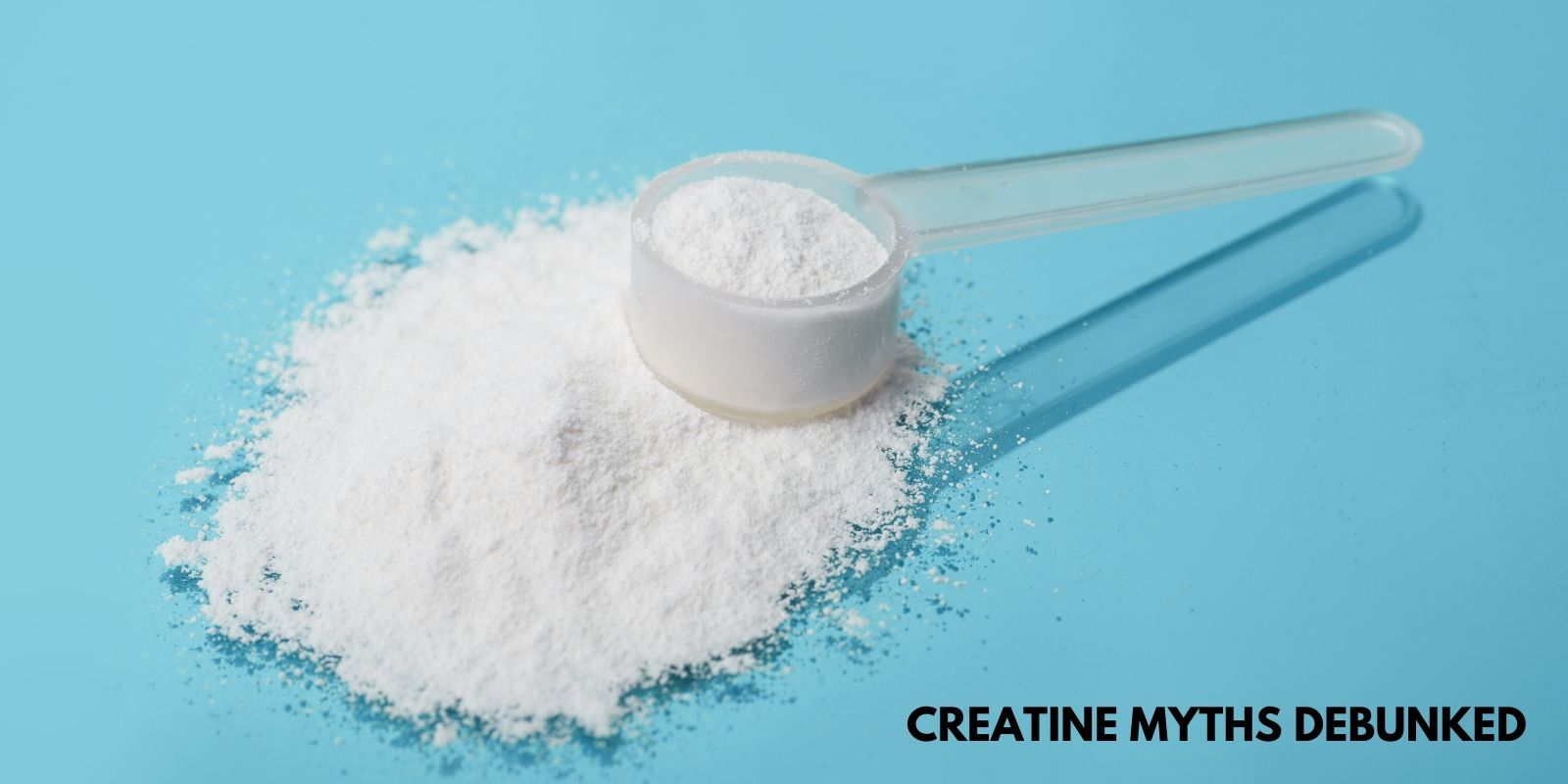Creatine is one of the most extensively researched supplements out there and is safe for healthy athletes to use; however, there are many myths and some half-truths out that still persist. Here are the top myths/half-truths I hear most often.
Myth #1: Creatine can dehydrate you and increase risk of cramps.
Creatine does not dehydrate you and does not increase your risk of cramping. It actually does quite the opposite. Creatine increases total body water stores and may help improve performance in hot/humid environments. A recent study at Baylor University looked at 72 NCAA D1 football players who consumed creatine and those that did not. They found that the creatine group experienced less muscle cramping, muscle tightness, muscle strains, heat illness, dehydration, and total injuries compared to those that did not take creatine.
If you are starting a training program for the first time or are kicking up the intensity or duration of your current program, you will need to increase your fluid intake regardless if you are taking creatine or not.
Myth #2: All forms of creatine are the same.
Creatine monohydrate is the most extensively researched form of creatine and the most effective form of creatine to increase exercise performance.
There is little to no evidence support claims that other forms of creatine are better digest and/or more effective with fewer “side effects” than creatine monohydrate. These other forms often cost more than creatine monohydrate.
Myth #3: Creatine damages your kidneys.
Researchers found that there is no evidence that creatine supplementation negatively affects kidney function in healthy populations. It is suggested that those individuals and athletes with pre-existing or potential risk of kidney disease should consult with their physician and dietitian prior to beginning creatine supplementation.
Half-Truth #4: Creatine makes you gain weight.
Our half-truth. Yes, we do see weight gain with creatine supplementation; however, it is way over-amped. On average, when beginning supplementing with creatine monohydrate following a loading protocol, athletes gain about 2-4 pounds in the short-term. A majority of this can be contributed to creatine retaining water in the muscle. Supplementing with creatine and following a resistance-training program over a longer period of time, 4-12 weeks, resulted in 2-6 lbs. greater increases in muscle mass compared to those who did not supplement with creatine.
References
- Dalbo VJ, Roberts M, Kerksick C, Stout J.Putting the myth of creatine supplementation leading to muscle cramps and dehydration to rest. Br J Sports Med. 2008 Jan 9;
- Gualano B, Ugrinowitsch C, Novaes RB et al. Effects of creatine supplementation on renal function: a randomized, double-blind, placebo-controlled clinical trial. Eur J Appl Physiol. 2008 Jan 11 [Epub ahead of print]
- Kuehl K, Goldberg L, Elliot D. Re: Long-term oral creatine supplementation does not impair renal function in healthy athletes. Med Sci Sports Exerc. 2000;32(1):248-249.
- Greenwood M, Kreider RB, Greenwood L, Byars A. Cramping and Injury Incidence in Collegiate Football Players Are Reduced by Creatine Supplementation. Journal of Athletic Training. 2003 Sep;38(3):216-219.
- Kreider RB, Jung YP. Creatine supplementation in exercise, sport, and medicineJ Exerc Nutr Biochem. 2011;15(2):53–69.
